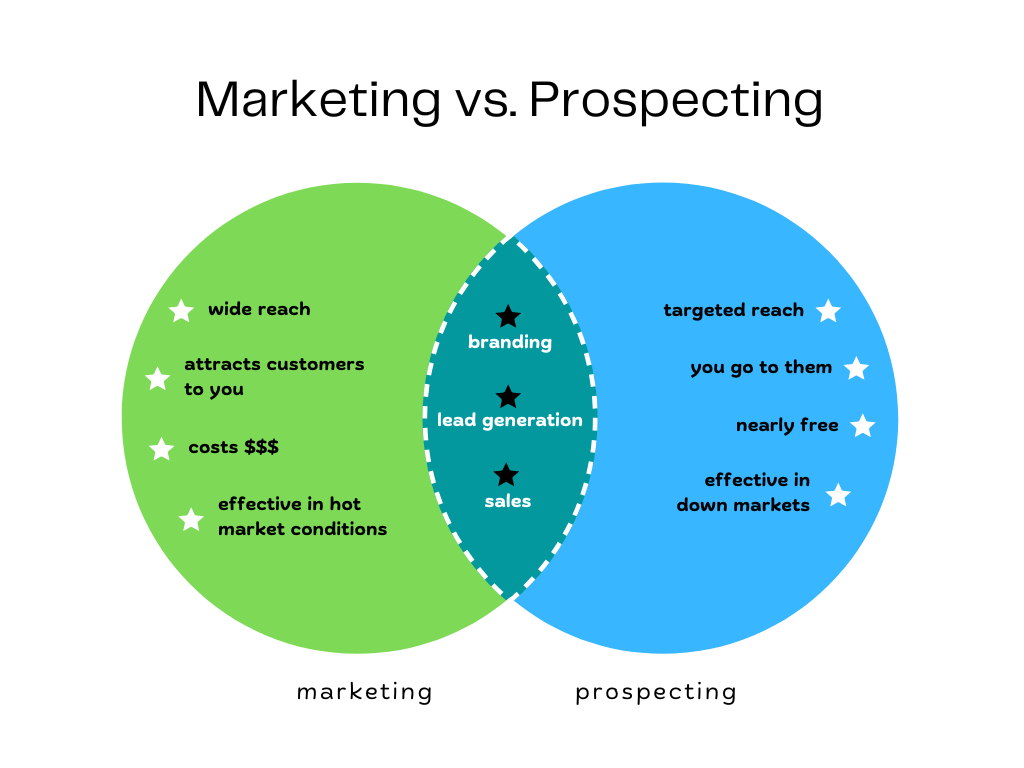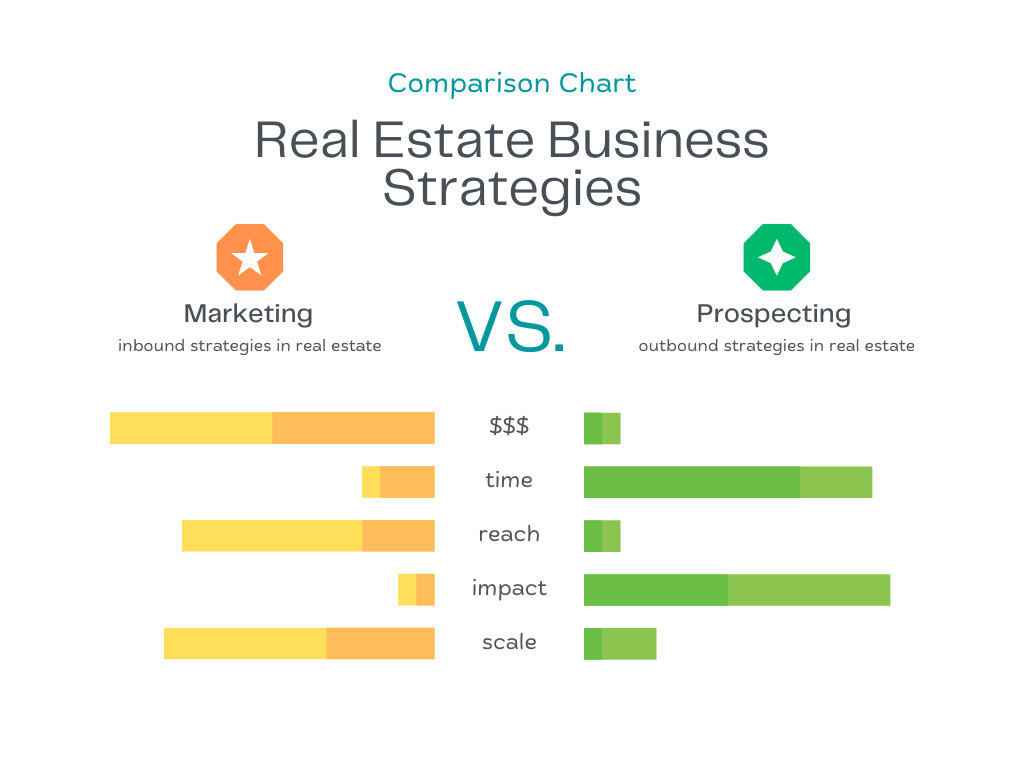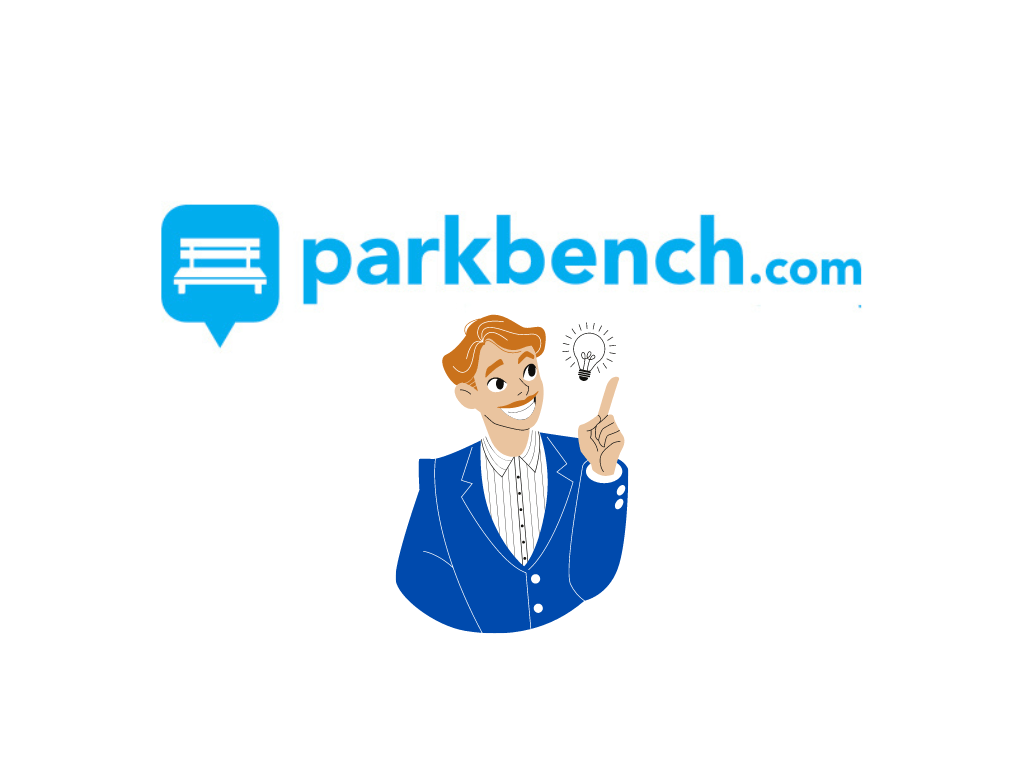Master Real Estate Strategy with Marketing & Prospecting
In real estate, both marketing and prospecting are essential ingredients to a successful business. Both offer strategies for generating leads, increasing sales, and growing your personal brand. However, despite what they have in common, marketing and prospecting come with different goals, different approaches, and most importantly, different outcomes. This article explores the differences between marketing vs. prospecting in real estate and offers guidance for calibrating a successful business strategy using both.

Marketing vs. Prospecting: Quick Definitions
Marketing is a broad business practice that aims to promote your unique value proposition to your audience in order to attract potential customers, grow your brand, and ultimately close deals. Businesses implement a wide range of tactics to market their products and services, using a multitude of different avenues. Because marketing is a broad term, the goal of your efforts will vary depending on the tactic used. However, they range from increasing brand awareness and growing an audience base to generating leads and sales.
Prospecting, on the other hand, can be regarded as a more proactive practice of seeking out potential clients. In the context of real estate, we see prospecting as a form of outbound marketing. While marketing tries to attract potential clients to you, prospecting pulls them in by going to them.
Note: Prospecting is technically a subset of marketing. As such, for the purposes of this article, we’ll be referring to marketing as shorthand for inbound marketing.
So, broadly speaking, both marketing and prospecting aim to generate leads and sales. However, they differ in how they get there. And that means that in a narrow sense, they carry different goals.
Let’s look at some examples.
Marketing vs. Prospecting: Examples of Marketing
- Traditional advertising: newspaper ads, billboards, radio, etc.
- Digital advertising: TikTok, YouTube, Facebook ads, Google Ads, Instagram, etc.
- Social Media: everything from creating and curating a public identity to engaging your audience
- Content creation: books, blogs, vlogs, podcasts, and anything else that you put out to attract attention and establish yourself as an expert in your field
- Branding: this includes all efforts to create a clear and recognizable brand and to remind your audience that you’re there. Branding strategies vary from systematizing your approach to open houses to sponsoring a local sports team and more.
The goal of each marketing effort should be narrowly defined. This way, you can recognize your key performance indicators (KPIs) and evaluate whether it is effective. For example, if you run a digital ad campaign to grow your newsletter subscriber list, the relevant KPIs would be reach, click-throughs, and conversions. Conversely, if you’re developing your social media strategy, you may be looking for followers and engagement.
Marketing vs. Prospecting: Examples of Prospecting
- Participating in community events
- Open Houses
- Door Knocking
- Cold Calling
- Strategic business partnerships
The goal of a prospecting effort is much easier to define. You want to connect with people and start a conversation. And, when the time is right, you want to determine where the person is in their cycle of homeownership. Effective prospecting in real estate is synonymous with good relationship building. This is why prospecting tactics always revolve around talking to people, giving you a chance to forge those bonds.
So, which is better and when?
A strong real estate business will always use both marketing and prospecting as a way of generating leads and establishing a presence in your community. So, the question isn’t marketing vs. prospecting – which is better? The question is how to weigh both strategies and decide which to invest more in at this time. Let’s look at the pros and cons of marketing vs. prospecting together.

Marketing Pros & Cons
- PROS
- You get to cast a wider net, which means you can reach a wider audience
- You can outsource some of your efforts if you have defined brand guidelines, which helps you achieve scale
- You can set up a system that works for you while you’re out doing something else, which makes it time efficient
- CONS
- Typically, all marketing efforts come with a price tag, which can get hefty
- While your reach may be wider, your connection or impact is weaker
- Additionally, marketing efforts have a longer conversion cycle, meaning it can take more time to see a return on your effort
Prospecting Pros & Cons
- PROS
- Free or minimal cost: You may have to buy a coffee, but otherwise conversations don’t cost anything
- Allows you to build relationships, which means that your potential impact is great
- Allows you to quickly determine what kind of value you can add to the customer by determining where they are in their homeownership cycle
- CONS
- Time consuming: You can’t outsource building relationships, so if you need to be somewhere else, prospecting will have to wait
- Your efforts may be impactful, but they don’t scale as well: You can only build a limited number of meaningful relationships at a time
What All This Means
According to a study by the National Association of Realtors (NAR), the majority of homebuyers (89%) begin their search online. Because of this, having a strong online presence and conversion funnel can be crucial to the success of your business. However, only 10% of buyers and sellers found their agent through an ad or online source. In fact, more than 50% of homebuyers and 63% of sellers found their agent through a referral or by having a prior relationship. This is to say that there is no substitute for relationship building.
So, how much time, effort, and money should you be spending marketing vs. prospecting? That’s the million dollar question. However, unlike other business questions where the answer is always “that depends…”, there is a correct answer.
In a hot market, you want to be spending more on marketing. This is because clients are likely to find you if you build an effective funnel. They already want what you’re offering, and if your number is attached to something they’re interested in, they may just pick up the phone. Additionally, in a hot market, your time is more precious than your marketing budget. So, if you see a return on your investment in several months to a year, you can afford to wait.
Conversely, in a down market, you want to spend more effort on prospecting. Fewer homes are on the market and fewer customers are shopping for agents. This means that people are probably feeling apprehensive and unsure about entering the market at this time. And as such, they are only willing to work with someone they trust. Moreover, as an agent working through a down market, money is a more precious resource than your time.
So, are we in a recession right now? For more insights into that discussion, check out this article. However, know this: Regardless of labels, the real estate market is quiet. What’s more, it’s more competitive than ever before. So, if you’re going to thrive through a down market, you need to tighten up your business operations. That means spending less money wherever that’s possible. It means getting creative with your sources of revenue. And it means calibrating your business strategy to favor prospecting over marketing.
Parkbench is to Prospecting What Gas is to Your Car
Want strategies for prospecting that actually work? Parkbench is a software and coaching solution that has developed a recession-proof system for growing your real estate business. It starts with generating value for your community and it ends with you forging meaningful relationships, becoming a Local Leader®, and building a real estate business that thrives in any market.
They only work with one agent per neighborhood, so if you’re interested in becoming a Local Leader®, book a free demo today and find out if yours is still available. If you sponsor your neighborhood, they will create and manage a website for your community that promotes local businesses, offers invaluable resources to the residents, and much more. Think Groupon meets Yellow Pages and Eventbrite, but hyper local. You can learn more about how it works here.
With more than 19,000 communities sponsored, they’ve already helped thousands of agents gross more than $1 billion in commissions. And they’re on track to reach their goal of helping 10,000 agents.
How Can You Be Sure It Works?
They’re willing to bet everything on it. Right now, when you sign up for Parkbench, if you don’t get the results you were looking for, they’ll double your investment.
That’s a 200% money back guarantee, no questions asked. So, you either grow your business… or they will pay you.






